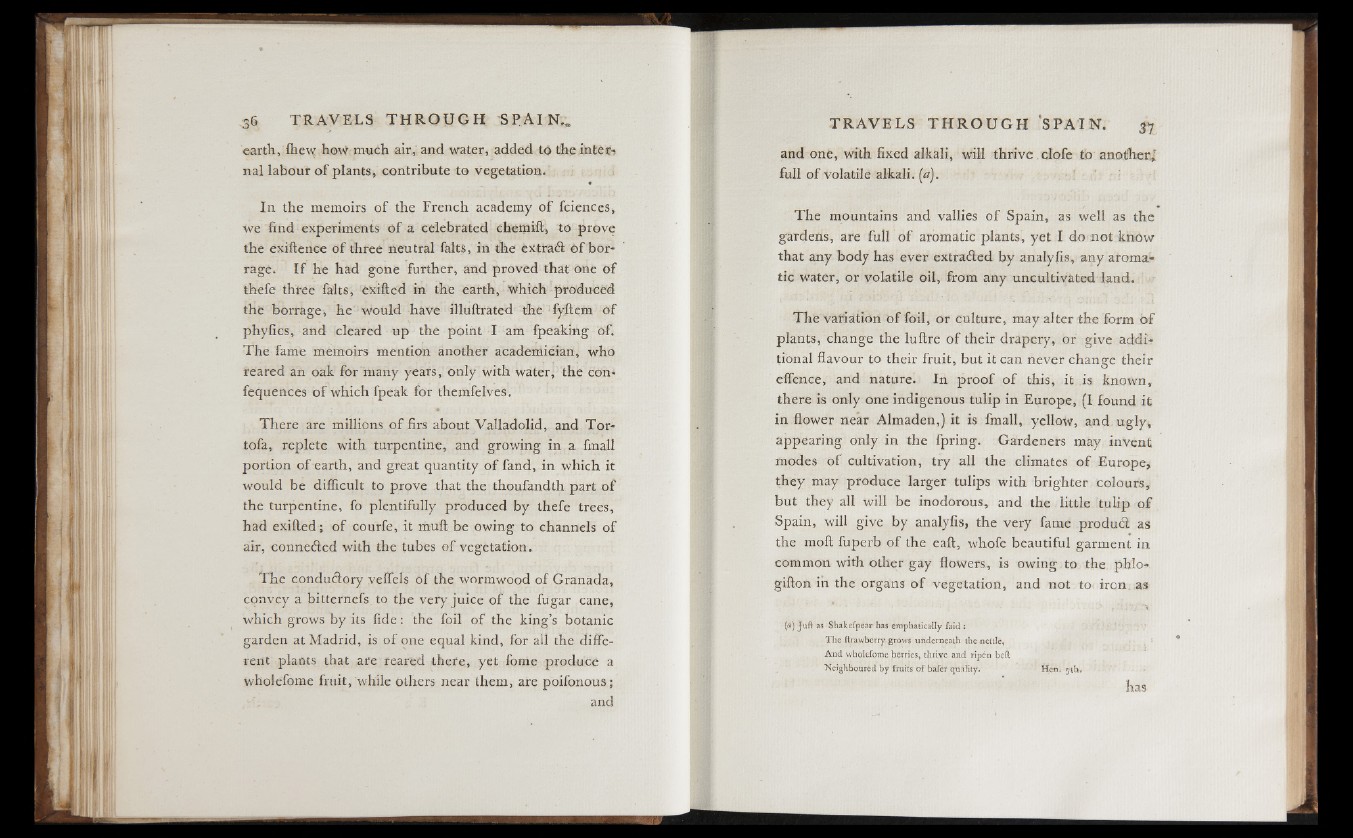
earth, ihevy how much air, and water, added to the inter-»
nal labour o f plants, contribute to vegetation.
In the memoirs of the French academy o f fciences,
we find experiments of a celebrated chemifi, to prove
the exiftence of three neutral falts, in the cxtraX o f bor-
rage. If he had gone further, and proved that one of
thefe three falts, exifted in the earth, which produced
the borrage, he would have illuftrated the fyftem Of
phyfics, and cleared up the point I am fpeaking of.
The fame memoirs mention another academician, who
reared an oak for many years, only with water j the con*
fequences o f which fpeak for themfelveS.
There are millions o f firs about Valladolid, and Tor-
tofa, replete with turpentine, and growing in a fmall
portion of earth, and great quantity o f fand, in which it
would be difficult to prove that the thoufandth part o f
the turpentine, fo plentifully produced by thefe trees,
had exifted; o f courfe, it muft be owing to channels of
air, connected with the tubes of vegetation.
The conduXory veffels o f the wormwood of Granada,
convey a bitternefs. to the very juice of the fugar cane,
which grows by its fide: the foil of the king’s botanic
garden at Madrid, is of one equal kind, for all the different
plants that are reared there, yet fome produce a
wholefome fruit, while others near them, are poifonous;
and
and one, with fixed alkali, will thrive , clofe to another*
full of volatile alkali, (a).
The mountains and vallies o f Spain, as well as the
gardens, are full o f aromatic plants, yet I do not know
that any body has ever extraXed by analyfis, any aromatic
water, or volatile oil, from any uncultivated land.
The variation o f foil, or culture, may alter the form Of
plants, change the luftre o f their drapery, or give additional
flavour to their fruit, but it can never change their
effence, and nature. In proof o f this, it is known,
there is only one indigenous tulip in Europe, (I found it
in flower near Almaden,) it is fmall, yellow, and, ugly,
appearing only in the fpring. Gardeners may invent
modes of cultivation, try all the climates o f Europe,
they may produce larger tulips with brighter colours,
but they all will be inodorous, and the little tulip o f
Spain, will give by analyfis, the very fame produX as
the moft fuperb of the eaft, whofe beautiful garment in
common with other gay flowers, is owing to the phlo-
gifton in the organs o f vegetation, and not to* iron, as
(») Juft as Shakefpear has emphatically faid :
The ftrawberry grows underneath the nettle,
And wholefome berries, thrive and ripen beft
Neighboured by fruits of bafer quality. Hen. 5th*
has